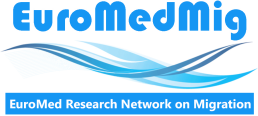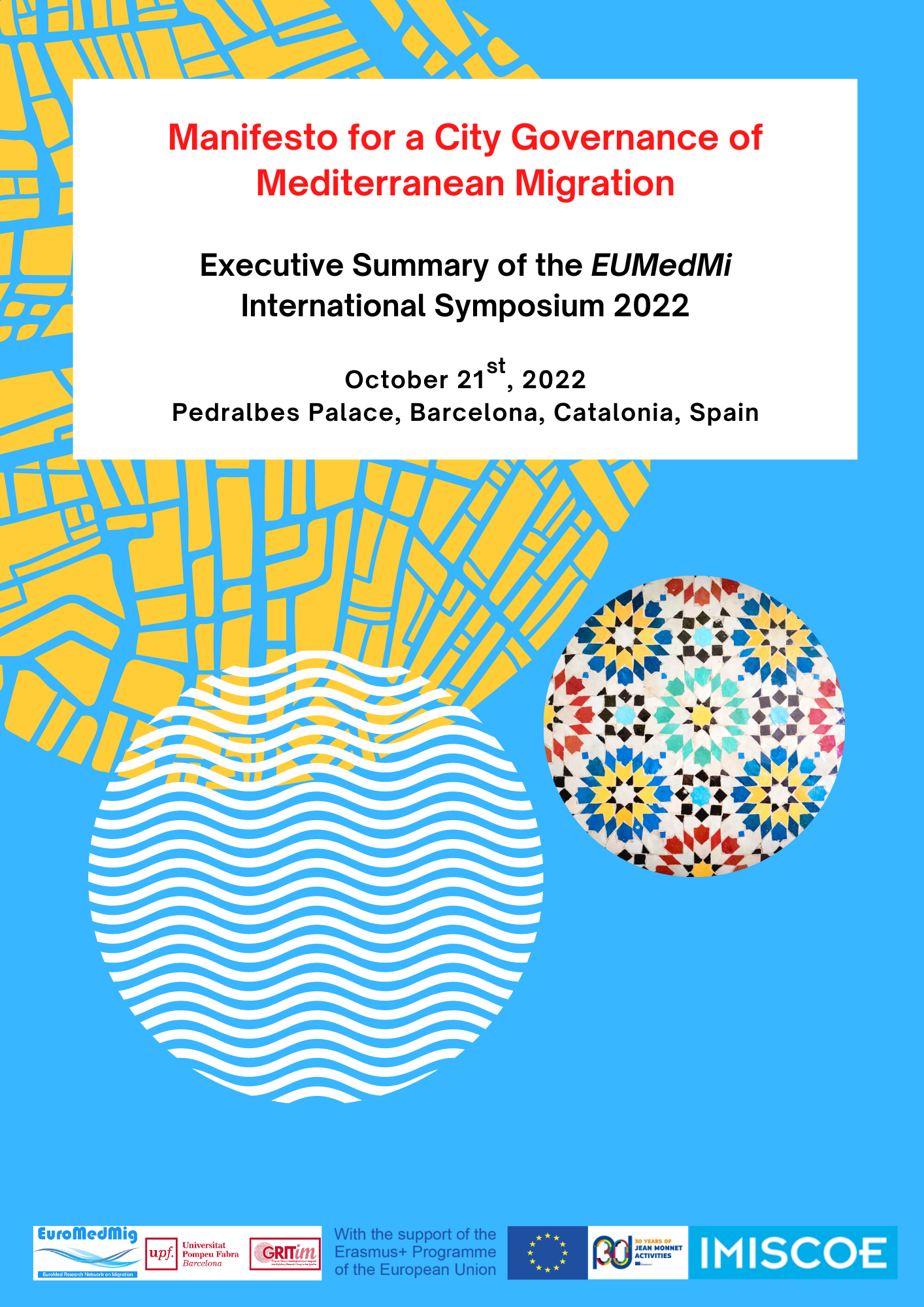EUMedMi Manifesto for City Governance of Mediterranean Migration
This Manifesto for City Governance of Mediterranean Migration is the outcome of the main concerns and governance proposals discussed during the EUMedMi International Symposium 2022 celebrated on the past October 21st, 2022, at Palau de Pedralbes, in Barcelona. The document has been prepared by the EuroMedMig Office Coordination Unit, the EUMedMi project director and co-director, with inputs from the EuroMedMig Scientific Committee. EuroMedMig is also grateful to the supporting institutions that made the event and resulting Manifesto possible: the European Institute for the Mediterranean (IEMed), the Catalan Ministry for Foreign Action and European Union, Barcelona City Council, and Union for the Mediterranean.
The Manifesto summarizes the main diagnoses by the participants guided by the following themes and questions:
- What are the main migration challenges and opportunities of Mediterranean cities today?
- How can the city perspective be incorporated into the current Euro-Mediterranean Migration agenda?
- What can Mediterranean cities learn from the past and how will cities be in the future?
- What is the status of knowledge production and data limitations on Mediterranean migration cities?
- How do Mediterranean cities manage the reception and assistance of migrants and refugees?
- How do urbanization processes, demographic change, and economic dynamics shape socio-spatial inequalities and integration in Mediterranean cities?
- How has the role of CSOs in dealing with migration issues evolved within the Mediterranean region of cities and the future of humanitarian action?
The EUMedMi Manifesto provides five main recommendations for a future research and policy agenda for Mediterranean migration governance:
- Improve urban migration governance capacities across the North, South, and Levant, reviewing legislative frameworks and administrative cooperation and coordination among different levels of governance, social policies and financial resources, housing availability, and access to basic rights (healthcare, food, etc.).
- Support civil society organizations and city networking to leverage financial and political support, legal resources, and human-building capacities.
- Reframe common Mediterranean cities' history of migration to raise awareness of a common migration history that incorporates colonial and postcolonial approaches, and the cosmopolitan dimension of cities built in through contact with other cities.
-
Create a Mediterranean cities research network of multistakeholder participation for data collection, knowledge production, and comparative analysis, including an open access data portal to solve the scarcity and disaggregated data at the local level, for policy and research purposes.
-
Create a Euro-Mediterranean Council of local governments for coordinating and cooperative policy strategies, and promote city regional building.
Furthermore, the Manifesto wants to be a framework for progress in the achievement of the Sustainable Development Goals of the 2030 Agenda from a human-centered perspective and the cornerstone of future cooperation between its contributors and other Mediterranean networks.
Access to the Manifesto's Full text: here.
See who is talking about the Manifesto...

